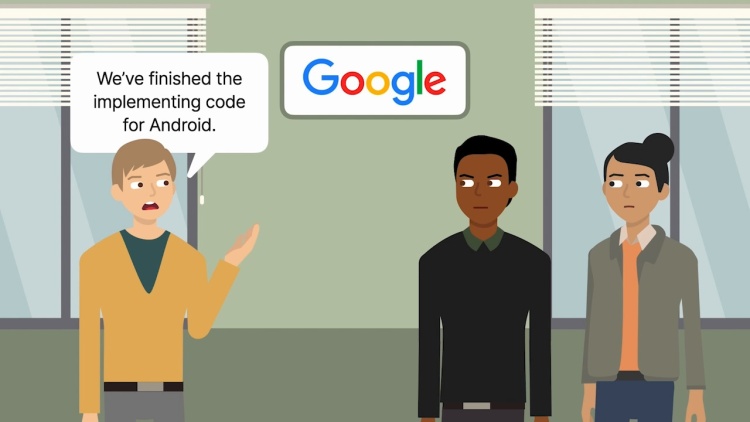Google LLC v. Oracle America, Inc.
United States Supreme Court
593 U.S. __, 141 S.Ct. 1183, 209 L.Ed.2d 311 (2021)
- Written by Liz Nakamura, JD
Facts
Oracle America, Inc. (Oracle) (defendant) created the Java programming language. Using the Java API user interface, programmers input declaring code, which then linked to Oracle’s extensive library of implementation code and allowed programmers to easily build new programs. Implementation code contained the execution instructions for various computing tasks. Typically, programmers needed to write implementation code for each task. However, in Java API, programmers could use declaring code as a shortcut to call up the existing implementation code in Oracle’s library. Essentially, this functionality allowed programmers to code only the high-level program structure, and then Java API would fill in the details. Oracle had tremendous success licensing Java API to third parties and focused exclusively on desktop and laptop computers. In 2005, when Google (plaintiff) started developing the Android operating system for smartphones, it copied 11,500 lines of Oracle’s declaring code, a small percentage of the overall Java language, for use in its Android programmer interface. This allowed Java-trained programmers to easily work with Android. Oracle sued Google for copyright infringement. The district court held that declaring code was not copyrightable because it was a system of operation. Oracle appealed, and the circuit court reversed, holding that declaring code was copyrightable and that Google infringed Oracle’s copyright by using Oracle’s declaring code to fulfill the same purpose and function on Google’s competing platform. Google appealed to the United States Supreme Court, asserting fair use.
Rule of Law
Issue
Holding and Reasoning (Breyer, J.)
Dissent (Thomas, J.)
What to do next…
Here's why 910,000 law students have relied on our case briefs:
- Written by law professors and practitioners, not other law students. 47,100 briefs, keyed to 997 casebooks. Top-notch customer support.
- The right amount of information, includes the facts, issues, rule of law, holding and reasoning, and any concurrences and dissents.
- Access in your classes, works on your mobile and tablet. Massive library of related video lessons and high quality multiple-choice questions.
- Easy to use, uniform format for every case brief. Written in plain English, not in legalese. Our briefs summarize and simplify; they don’t just repeat the court’s language.





